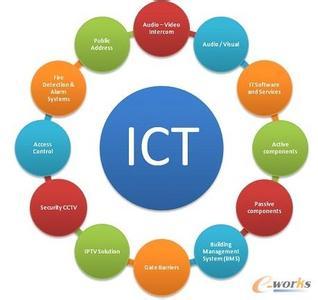A survey on status and trends of information and communication technologies (ICT) use for knowledge sharing in agriculture was attempted. Among asian countries, India comes under the second next category after the advanced user category comprising Japan, South Korea and Taiwan. Both profit-motive and business augmentation on one hand and community services and rural welfare on the other have been the objectives of ICT-based models in agriculture in India. The ICT endeavours for agriculture belong to a wide array of agencies, viz private sector, public sector, self-help groups and NGOs, and also include combined endeavours. e-Learning is being increasingly resorted to both in (i) in campus or 'presence' mode, and (ii) 'distance' mode. Its use is gradually easing-out the stakeholders from the stranglehold of the inter-deterrence of the 3 arms of the 'Iron Triangle', viz (i) quality, (ii) access, and (iii) cost. The social groups having less mobility are poised to benefit more from this mode of education. This could also be one of the potent tools to bring about gender mainstreaming. e-Learning is being integrated into the existing organizational and educational structure as a hybrid system that can be called 'ICT-supported learning'. Connectivity, content development, infrastructure development, faculty developmeat, need assessment on a continuum, linking the node3 and formation of consortia etc. are the areas identified that need to be supported and developed.
翻译:试图对信息和通信技术(ICT)用于农业知识共享的状况和趋势进行调查,在亚洲国家中,印度在日本、韩国和台湾等先进用户类别之后,属于第二个类别,在日本、韩国和台湾等先进用户类别中,印度属于第二个类别;利润和企业增长以及社区服务和农村福利都是印度基于信通技术的农业模式的目标;信通技术农业工作属于一系列机构,即私营部门、公共部门、自助团体和非政府组织,还包括联合努力;电子学习正在越来越多地成为(一) 校园或“所在地”模式和(二) “距离”模式中的第二类别;它正在逐渐从“伊伦三角”3个分支的扼杀中缓解利害关系,社区服务和农村福利都是印度农业基于信通技术的模式的目标;信通技术农业工作属于许多机构,即私营部门、公共部门、自助团体和非政府组织,还包括联合努力。 电子学习是将电子学习和“所在地”模式纳入现有组织和连通性结构的一个有力工具,它被称作“连通性基础设施”的连通和连通性系统,它被称作“联通性发展”系统。





